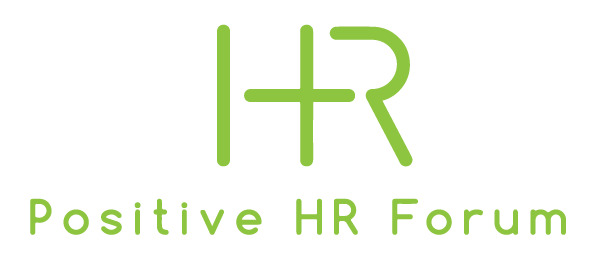17 Feb A personal account of dealing with burnout and creating employee wellbeing

Burnout is awful, debilitating and scary. In 2013 I spent months in physical pain, exhausted, drained and struggling to get through each day. But I didn’t want to stop, I didn’t want to give in and I kept on working, pushing and trying to prove I was ok.
But who was I trying to prove it to?
Everyone around me could see I was struggling. When you’re in so much pain that you can’t walk properly, have no strength and can’t focus properly – the only person I was really trying to prove anything to was myself.
I got to the point of burnout for a number of reasons:
- I’d changed roles and started to work in London. 1 hour and 48 minutes (on a good day) daily commute
- The organisation I had moved to was a culture-shock-and-a-half from where I had come from. But I was now HRD and convinced I could change it all
- Six months after starting I had a new boss who was as much help as a chocolate teapot
- My role had been the last role in the structure to be recruited and the structure and a lot of the team weren’t fit for purpose
- The business was trying to do too much – I was involved with three major projects in addition to the ‘day job’
- The business was demanding
- HR didn’t have a voice
- The Exec team were only interested in themselves
- I was being stabbed in the back by two of the external consultancies
- It was my first HRD role
- Working from home was guilt-ridden and you were always made to feel that if you took a breath you’d be accused of not working
- I was responsible for ‘the culture change project’ – that we all know isn’t a project
STRESSED AND CLOSE TO BURNOUT
I hadn’t realised that despite any of this I was stressed, I assumed that the six-figure salary justified the ten thousand things I was trying to juggle at once along with the level of responsibility that had landed on my plate. Every day I tried to make progress. Moving one step forward and taking two steps back.
My brain only functioned properly when I was on the train. The only time-of-day that I could sit and breathe without interruptions. If the train was delayed on the way home, I was always grateful for a bit more time to process my thoughts and communicate properly with my team.
I’d like to say that what I experienced was an isolated incident and perhaps it was just me that hadn’t coped well in the role. But this isn’t true. Three of the people who had been in the role before me had all suffered from health problems in the role (nobody told me this until I had left). And sadly, my replacement died in her sleep at a leadership development event. Now I’m not saying that’s directly related… but it makes you think.
Having had to undergo two operations in 48 hours because of the physical issues that the burnout had created in my body, I knew something had to change. I knew I had to do something to stop anyone else in HR ever having to experience this in their life.
I took a lot of steps to help myself and I use much of this now to support HR and leaders. It is possible to create an organisation where burnout is non-existent and your people are happy. Here are the three things to consider:
TRUST
Organisations where trust is high, have lower levels of absence, staff turnover and stress. If you can keep these low, you’re onto a winner.
If you’re trusted to do your job, trusted to communicate effectively, trusted in your decision-making ability and trusted that you’ll do what’s needed to get the job done; as well as being trusted to take a break and speak up if you need help – burnout can’t fester. Burnout can be like a fungus that grows in the damp and dark, slowly taking over. At first it’s hidden but then it spreads and it’s a nightmare to get rid of.
Trust is a fundamental part of successful relationships, great communication, and business growth.
The more trust you have in your organisation, the happier your people and the less burnout there will be.
TALK
Time to talk can sound like a bit of cliché but talking really does help with happiness and avoiding burnout. But I mean Honest, Open and Transparent conversations (H.O.T). Culture plays a big part in this happening effectively.
We’re not really taught to have H.O.T conversations, are we? We’re told that we need to be kind, and consider the feelings of others and not say anything to hurt anyone and only speak if we have something nice to say. But life doesn’t always work that way.
Stress, depression, anger, frustration, sadness and loneliness can all stem from our inability to speak to one another honestly.
It’s unkind to not be honest, it’s unkind to not be transparent and it’s unkind to not be open.
So, we can all talk. It’s the effort to make it meaningful that creates happiness and allows people to say how they truly feel and what they really need in order to help avoid burnout.
SIMPLIFY
Keep it simple (stupid) as the saying goes. And I couldn’t agree more. I’ve been in this trap and I see it so often with so many of our clients. We try and overcomplicate things; thinking it will make us more successful, look more intelligent and help us prove our worth.
The ‘intelligent’ ones among us, are those that can keep things simple. Those can take a step back, look at what to stop and stop it!
“That’s not working”, “Stop it then”.
We try to do much, and this causes us to procrastinate, panic and not make any progress. In turn, this causes us to feel like failures. This then impacts our self-esteem and confidence, and anxiety grows. Anxiety can lead to stress and or depression. We stop sleeping and all of a sudden you feel like you’re in a pit of despair and you don’t know how to get out.
Simplify your systems, your processes and the way we communicate and grow to develop the way we work; this works at home as well. Clear the clutter, keep your wardrobe simple – Say NO the meetings that don’t work. Be clear on what is a priority and what isn’t. Keep things simple genius!
By making the changes to my life; my business and at home, and through helping clients to create organisations that have trust, H.O.T conversations and simplicity – we really can do things differently and help to change the world of work.
Kelly Swingler
Kelly is Founder of The Chrysalis Crew and Global Empowerment Coach for Senior People Leaders at kellyswingler.com. She leads the crew with an open heart, an open mind and has the courage to challenge the status quo and do things differently so that we can put our people first and change the world of work.


